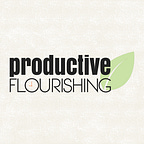Today’s guest, Kerra Bolton, is a journalist turned political communication strategist turned consultant who helps people and businesses get involved in their communities through business activism. Kerra joins Charlie on the show today to discuss what business activism is, and how it’s easier and safer than people think it is. You don’t have to pick the biggest and most controversial topics and alienate your customers to make a difference in your community. Making a difference in your community makes a huge difference to your customers.
Key Takeaways:
[2:30] - What is business activism? To Kerra, it means using your business to take a stand on social issues and/or to help in your community in some way that makes you a community leader through your business. Also using the resources of your business to meet the challenges and opportunities of your community.
[3:35] - Perhaps today more than before, there is a call for more businesses and brands to get involved at a social and political level. Historically, business activism reflects culture. There was not the same call for businesses to take a stand, but many individuals channeled their money into philanthropy.
[6:03] - For Kerra, there is a distinction between volunteering (and philanthropy) and activism. Volunteering is taking actions or a series of actions to alleviate suffering in some way. Activism is a set of actions towards changing political or public policy, or making social change via the political system. Business activism is when you as a business owner are using the resources and tools of your business to solve a particular problem in the community that you serve.
[8:00] - Charlie shares the Patagonia example of business activism, and the stance they’ve taken in regards to the land of the national parks. This issue is something that is relevant to their business, and part of their business heritage.
[11:35] - In addition to heritage, there are some other factors for businesses to consider when taking a stance. One is authenticity - businesses should treat activism as a movement, rather than as a moment. Another thing is team support; team support can help you flesh out ideas and provides different avenues for your activism to play out. The last thing to consider is the relationship your brand has with your audience. It can serve as a portal to deeper your audience’s engagement and inspire them.
[14:30] - Business activism doesn’t have to be that extreme or big. There is a range of how much you can get involved, and you can still make a difference. Kerra’s advice is to start local, and look at the needs in your community and the communities that your business serves. This allows you to get involved without necessarily having to jump into the political fray. There are some safe groups you could serve: kids, pets, the elderly, and veterans.
[18:11] - Some people may feel that if they get involved in business activism that they will lose customers, and it would be safer to not get involved. There are some benefits though. Getting involved at some level allows you to be part of the change, and also businesses can carry more sway than individuals being involved.
[20:50] - Kerra has a background in media and politics. She has an understanding of how government works from the local level all the way up to Congress. After journalism, she joined the North Carolina Democratic Party has a state spokesperson. Kerra has also worked as a lobbyist and helping non-profits share their stories; she’s been very involved in public policy because that what she’s seen be successful in getting things done.
[22:40] - Building relationships with your politicians can help with public policy. It’s not really that hard to establish relationships with them. They like knowing what people are saying locally because they don’t receive that information. From a business perspective, prioritizing your employees ability to make appointments to meet with legislators is an indirect way where your business doesn’t have to take a stance, but still supports political involvement.
[28:30] - Kerra talks about her experience working with legislators and how her tenacity and persistence helped her develop good relationships with them.
[29:35] - Another facet of business activism is community and customer solidarity. As a consumer, having a business or brand stand up for what you believe in gives a sense of community. As a business, you provide solidarity and promote customer loyalty as well as a form of change together.
[31:25] - There are some ways not to get involved, and Kerra shares the examples of Pepsi and Papa John’s. It is not as effective for your business to jump in on the news of the day. You want to think long-term and issue-oriented.
[35:57] - Social listening is a great opportunity to figure out what your customers are thinking about certain topics. Listening to not only their pain points but also the things that they hope for can help guide your activism.
[37:20] - A final thing to consider is supporting a political entity versus a policy. Your donations to political parties can be traced, and a donation can tie you to a party or person. Issue-based advocacy is really the best way to go.
[39:38] - Kerra’s invitation for listeners is to get off your phones and social media, and get into your community. Look around and notice who’s not being heard, think about what you love, and do some social listening to see what’s going on. Roll up your sleeves and find a way to get involved.
Mentioned in This Episode:












